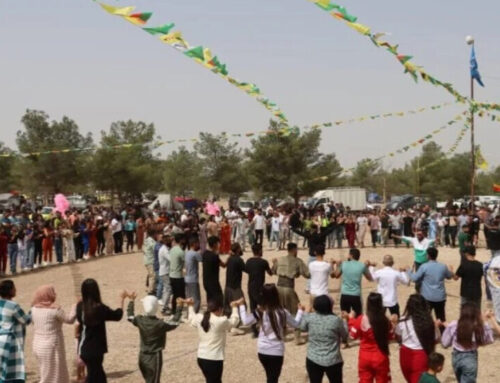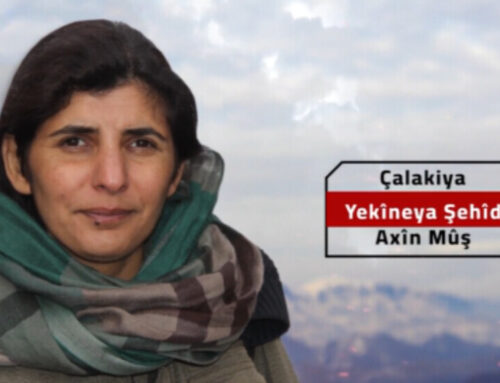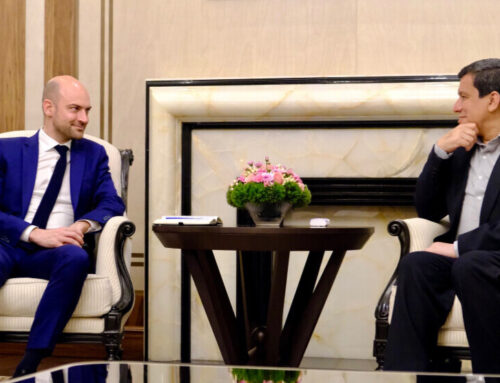Veteran human rights lawyer Eren Keskin says Turkey’s treatment of jailed Kurdish leader Abdullah Öcalan violates international norms and highlights systemic legal inequalities. She urges transparency in peace talks and calls for nationwide implementation of the European-backed Right to Hope regulation.

“We are witnessing a penal regime that defies the law itself,” said Eren Keskin, co-chair of Turkey’s Human Rights Association (İHD), denouncing the unprecedented isolation of Kurdish leader Abdullah Öcalan in İmralı Prison during a recent interview with Medya Haber TV.
Keskin, one of the first lawyers to defend Öcalan after his 1999 capture, described his prolonged solitary confinement on the high-security F-Type prison island as a “horrifying level of isolation” that has intensified over the past five years. Despite legal entitlement to family and lawyer visits under domestic Turkish and international law, Öcalan was denied all contact with the outside world between March 2021 and October 2024.
“This is not new,” Keskin said. “There was always isolation, even from the beginning. The difference now is its complete unlawfulness.”
Öcalan, the founding leader of the militant Kurdistan Workers’ Party (PKK), has been held on İmralı Island since his international capture. His death sentence was later commuted to an ‘aggravated life sentence’—excluding the possibility of parole—when Turkey abolished the death penalty as part of its EU candidacy.
The PKK is considered a terrorist organisation by Turkey, the EU, and the US. However, during his 26 years of isolated imprisonment, Öcalan has remained a pivotal figure in Kurdish politics and in peace negotiations between the Turkish state and Kurdish political actors.
Keskin emphasised that “a unique and illegal penal regime” has been created at İmralı, one that “violates even the enforcement law of the Republic of Turkey”. She added: “You don’t know who to appeal to—there is no known authority behind the practice.”
Öcalan’s prolonged isolation, she said, must now be challenged through the newly proposed “Right to Hope” legislation, inspired by a 2014 European Court of Human Rights (ECHR) ruling which deemed life imprisonment without parole a violation of human dignity.
“The right to hope must be applied not just to Öcalan, but to all prisoners serving aggravated life sentences,” Keskin stated. “This is not a privilege—it’s an obligation under the European Convention on Human Rights, which Turkey has signed.”
While legal reforms are being discussed that may allow for greater communication or even house arrest arrangements for Öcalan, Keskin said the process remains shrouded in secrecy. “It’s obvious the state is speaking with Öcalan,” she claimed. “Just like in the previous peace process, but now it’s not being shared with the public.”
She called for full transparency and parliamentary oversight. “If society is to support peace, the process must be public,” she said.
Keskin also connected Öcalan’s case to broader criticisms of Turkey’s legal system. “The Republic of Turkey has never been a state governed by the rule of law,” she argued, citing historical laws targeting the Kurdish-majority regions—like the Tunceli Law and State of Emergency decrees—as part of a legal structure rooted in discrimination.
Referring to Mahmut Esat Bozkurt, one of the early legal architects of the Republic, Keskin quoted him as saying: “In this country, anyone who is not Turkish only has the right to serve Turks.”
“From its founding, the legal system was designed for a Sunni Muslim Turkish identity,” Keskin said. “Kurdistan has always had its own laws—exile, censorship, anti-terrorism—but they were never applied to other regions.”
She also criticised Turkey’s continued use of the Anti-Terror Law, which she said serves no real purpose beyond prosecuting Kurdish dissent. “The Turkish Penal Code already covers organised crime. This law is political, and it must be abolished,” she said.
The lawyer also questioned the sincerity of Turkey’s opposition parties. While praising recent symbolic visits to political prisoners, she criticised Republican People’s Party (CHP) leader Özgür Özel for overlooking Kurdish prisoners like Fatma Tokmak, despite their urgent medical conditions.
“Injustice is not just committed by the state—it is sustained by the double standards of those who claim to oppose it,” Keskin said.
Ultimately, she concluded, “there must be political will to become a state governed by law.” But until then, human rights defenders, she said, will continue demanding compliance with international obligations and dignity for all prisoners, regardless of political identity.








Leave A Comment